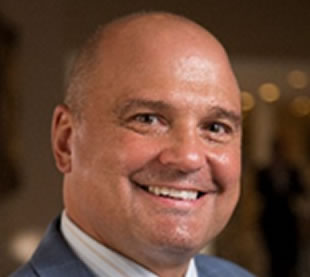
Blog: A Popular Way To Avoid Capital Gains Taxes
 With the tax talk out of Washington indicating a hike in income tax rates as well as capital gains tax rates, I am getting more questions about strategies to reduce taxes. Unfortunately, if your goal is to find ways to reduce taxes, many loopholes have already been closed. However, there is one strategy that has not yet been targeted for the chopping block. This maneuver can both reduce your capital gains tax and allow you to help others in need.
With the tax talk out of Washington indicating a hike in income tax rates as well as capital gains tax rates, I am getting more questions about strategies to reduce taxes. Unfortunately, if your goal is to find ways to reduce taxes, many loopholes have already been closed. However, there is one strategy that has not yet been targeted for the chopping block. This maneuver can both reduce your capital gains tax and allow you to help others in need.
Contrary to the picture often painted by some elected officials or media outlets, I find that many of my wealthy clients are charitable minded and interested in helping others. We often discuss these seven things one can do with money:
- Save it and do nothing with it,
- Spend it on yourself and/or family members and loved ones,
- Give it to family members or loved ones during life,
- Give it to a charity during life,
- Give to a family member or loved one after life,
- Give to a charity after life,
- Give to the government after life.
Gifting Appreciated Securities
Gifting appreciated securities during life helps achieve the twin goals of having the joy of helping others and reducing your tax bill. This is because when you directly donate shares of stock to a charity, the charity can sell those shares and they are exempt from paying capital gains taxes. And you may qualify for a full tax-deduction on the value of the shares up to the IRS allowable limits.
Here is how the strategy can work. First, identify a tax-exempt charity that you have an interest in working with. Next, contact their development office and ask them if they have an account where you can donate your shares of appreciated stock. They should be able to provide you with the name of their investment account, the account number, the custodian, and the necessary instructions to transfer your securities into their account.
If your charity doesn’t directly accept shares, or if you are unsure to whom you want to donate, you can gift to a Donor Advised Fund (DAF). In either case, once those assets arrive, they can be sold by the charity or DAF. The tax-exempt charity, or the DAF now has the full value of your stock shares and will not have to pay the capital gains tax that you would have been responsible for.
The federal capital gains rate is currently 20% and may go higher. In addition, many states also tax ‘realized’ capital gains and high earners could also be subject to the 3.8% investment tax included in the Affordable Care Act. Here is an example using a combined, hypothetical tax rate of 30%. Be assured this is just an estimated example, and please note that your capital gains tax rate may vary.
For example, Joe and Jane want to give $10,000 to a charity. They can, of course, write a check for $10,000. Or they can look at their stock portfolio for shares that have appreciated. Let’s say they have $10,000 worth of stock with a cost basis of $4,000. By gifting these appreciated shares, they can avoid the tax on $6,000 worth of gains.
If the hypothetical all-in tax rate on the gain is 30%, they saved an approximate $1,800. Had they sold the shares themselves, and gifted the proceeds, they would have netted only $8,200 and would have had to raise an additional $1,800 in order to meet their goal of a $10,000 donation!
The tax savings is making this strategy popular, and if capital gains tax rates increase, could become even more popular. And why not? For many people, donating money for a worthy cause while saving on taxes seems to be the proverbial ‘win-win.’
Mark Avallone does not provide legal or tax advice. You should consult a legal or tax professional regarding your individual situation.



Engage us on Facebook
Follow us on Twitter
Tweets by @mymcmedia